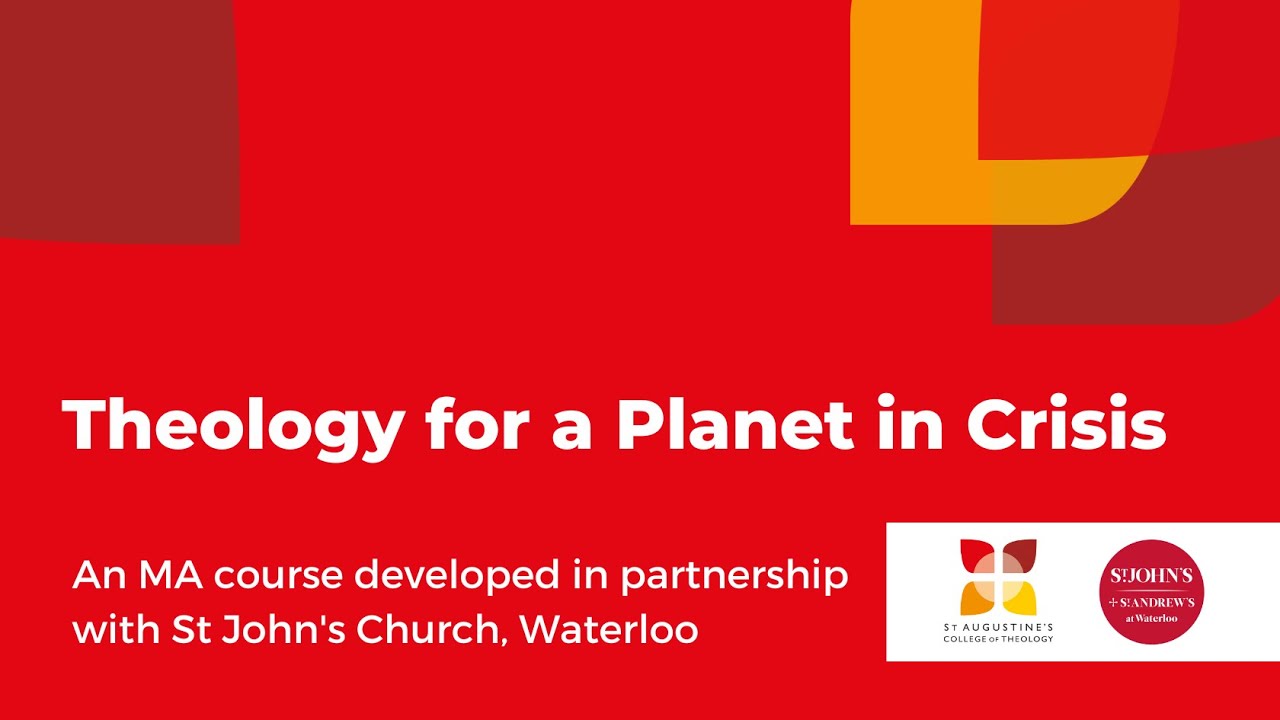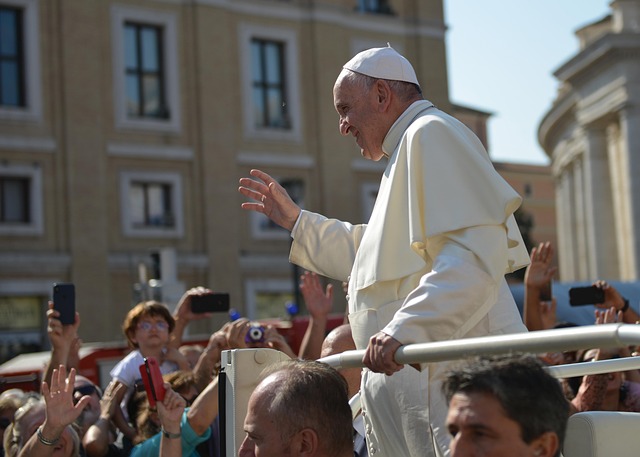
Hear from tutor Guido de Graaff as he introduces our new MA Pathway, Theology for a Planet in Crisis.
Naomi Klein’s This Changes Everything, published in 2014, is a good guide to both the climate crisis and the activism inspired by this very present danger. Klein has a blind spot, though, and it is both worrying and puzzling. In just under 500 pages, with multiple examples of climate activism to illustrate her case, she never mentions religion. Given the influence of the world’s faiths, for good and ill, and the billions of human beings who claim allegiance to one or other of them, this omission deserves the cliché ‘glaring’.
An appalling caricature
To our shame, perhaps the Christianity she knows, as both a Jewish woman and an atheist, appears irredeemably racist, politically reactionary, anti-scientific, and utterly taken up with what Frank Zappa once described as the ‘necrodestination’ of our individual souls. An appalling caricature, of course, though I guess not too far from Klein’s imagination. This silence on religion in general, and Christianity in particular, limits this widely read and stirring book, especially on the activist side. In disregarding religious movements, communities, and individual faith, Klein misses a potent and global source of inspiration, imagination, thoughtfulness, and practical action.
The unique potency of faith
Ironically, only a year after Klein’s book, out came Pope Francis’ encyclical Laudato Si’, attracting global attention well beyond the Catholic church. Laudato Si’ hits hard, the Pope locks together environmental destruction and the threatened lives of the world’s poor; he leaves no doubt as to wealthy nations’ responsibility for our global peril; and he demands urgent institutional and individual change. Pope Francis also intimates, however, throughout the encyclical, the unique potency of faith to generate the will for that change, as well as courage for the long haul to bring it about.

Waiting in action, not resignation
No quick fix will allow humanity even to approach, on a global level, a just and prosperous living within the planetary limits necessary for our survival. We need generations of patience, long-suffering, persistence, much trial and not a little error. Christians have known for centuries about waiting, and waiting in action not resignation, ever since we realised that whatever ‘Jesus will return’ meant, it was not happening any time soon. This faith has also taught us about forgiveness and reconciliation, without which change, as Francis knows, will fall by the way of violence and competition.
A humanity reborn
Though we have betrayed and obscured this in every imaginable way, Christians still carry a vision of a humanity reborn in a glorious multiplicity, held together by one Spirit; a longing for the peace in which life’s fullness flourishes gloriously. Surely this has the power to get us moving and to inspire others, including those who do not share our faith? Tellingly, given the saint’s popularity in and out of the Church, Francis appeals to his namesake, the fascinating figure of St Francis of Assisi, and to the beauty of his strange canticle of creaturely praise, in which even death becomes our ‘sister’.
St Francis suggests the mysterious joy that comes from forgetting ourselves for the sake of those who suffer; the passion of God’s calling to the defence and nurture of life; the wonder of a creation that is mind-bogglingly complex, as well as weird, unpredictable, vulnerable, not organised to privilege us, and yet God’s gift, an intense plenitude of life, frighteningly beautiful.
For the difficult work of change, we need a motivation stronger than either our fears or our comforts; we need the hope that our efforts hide a grace greater than we know, and the trust that our weakness and wickedness do not condemn us before we start. Exploring that motivation, learning how to communicate it, and, with regard to today’s biodiversity and climate crises, discovering the paths along which it impels us, drives the curriculum of St Augustine’s new MA pathway: Theology for a Planet in Crisis.
The new MA pathway: Theology for a Planet in Crisis
With this pathway, St Augustine’s seeks to enable more experienced students to engage with environmental theology in depth, drawing from the Christian tradition, in conversation with relevant science, and with a view to shaping contemporary Christian discipleship and ministry that is responsive to the ecological crises facing our planet. The pathway is delivered at and in partnership with St John’s Church, Waterloo, which has a strong track record of ecologically focused mission and activism.
Watch the video snapshot for a glimpse into a lecture or seminar on this pathway.
Watch and listen to Phil, Emily-Grace and Alex as they reflect on taking the introductory module (‘Christian Faith and the Environment’) last Autumn Term.
Phil talks about how the diversity of the module group enriched the learning experience.
Meanwhile, Emily-Grace reflects on how the module connected with a range of different aspects of her life experience.
And Alex speaks of the urgency of addressing the climate crisis in Christian ministry.
The modules
Whether you study full-time or part-time, your programme will include a selection of the following modules:
Christian Faith and the Environment: an introduction to the whole pathway and its main themes, including a short ‘observation’ placement at a Christian/religious organisation or charity involved in ecological work.
Contemporary Spirituality in Historical Context: this module explores not only the ecological strands of Christian spiritual traditions, but also (among other things) the spiritual dimension of contemporary ecological practices.
Science and Faith: this module tackles the sometimes-troubled relation between science and faith, aiming for a sophisticated conversation between the two – in the interest of (among other things) the building of trust and collaboration between religious and scientific communities concerned with the planet’s future.
Advanced Topic in Christian Doctrine: exploring in detail a doctrinal topic that is particularly relevant to eco-theology, such as Creation, Incarnation, Salvation or Eschatology.
Issues in Biblical Theology: along similar lines as the doctrine module, this course will engage in depth with a biblical theme or concept that is relevant to a theological engagement with the planetary crisis – for example, OT themes like the relation between the people and the land; other creatures’ praise of God (e.g., Psalms); apocalyptic prophecies; Christ as Lord of creation; apocalyptic eschatology.
Reflective Practice Placement: a more extensive and more ‘hands-on’ placement at a Christian/religious organisation or charity involved in ecological work, with assessed work focussing on reflective integration of practice experience with learning throughout the pathway.
MA Dissertation: an opportunity to pursue a chosen topic or question relevant to the pathway and its objectives.
The pathway has a strong contextual and applied focus, allowing you to develop subject knowledge and skills, and apply them in demanding and complex contexts, including those of your ongoing ministerial and/or professional practice.
Lectures and seminars take place on Fridays at St John’s, Waterloo, from 10:30am until 4pm. For more information, including how to apply for the course, see here.
Keen to learn even more about how this pathway is developing?
Listen and watch this conversation between St Augustine’s tutors and an MA student reflecting on how the first term of the new pathway has been going.

